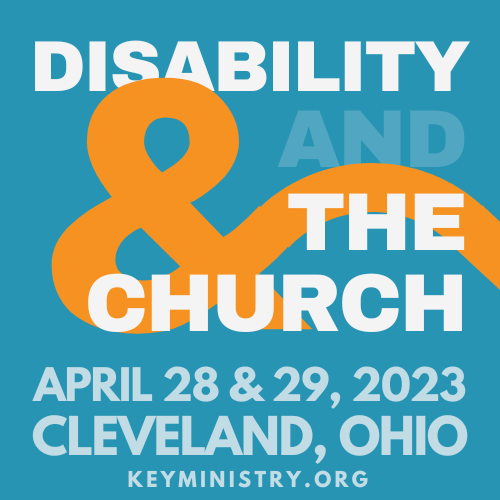There is a lot to know about me.
I bemoan the yearly struggles of West Virginia University football. I relax by studying presidential history. I live on coffee and Diet Coke.
The three most important things about me are that I am a child of God, a United Methodist pastor, and the father of two children. One of my sons is a beautiful, loving, and Mickey Mouse Clubhouse-quoting non-verbal autistic child (level 3). His name is Noah because, of course, a pastor has to give their child a Biblical name. Nothing brings me more joy than being their father.
When I begin worship each Sunday, I do so with a general word of grace that shares my thankfulness in worshiping God with my congregation (whether they are in our sanctuary or online). Deep down, I wonder if the churches I have served have shared that same expression of thankfulness with my autistic child.
Noah loves going to worship. He loves Children’s Church. He also loves to serve my wife communion bread because to him bread dipped in juice is a bridge too far for his sensory needs. One of my greatest joys as a pastor and a father was when he decided he needed to help me with the benediction and walked with me as I provided the blessing. I love it when he is in the church because he reminds us all of God's grace and love for every person.
Photo by Stephen Radford on Unsplash
Noah has always loved the church, even when the church has not always been kind to him.
As a pastor, I see the congregations I serve from both a forest-level and surface-level perspective. I look at how we function as a community to give honor and glory to God, yet I also experience how the smaller parts work within that functioning body. Those smaller parts often include individual members and their connections with others. These interactions often define how someone engages a congregation more than any 25-minute sermon I may give.
Those individual engagements are where it is challenging to be both a lead pastor and a dad.
I see the glances towards my son when he makes noise in worship. I see the people who jump with excitement to engage the typical-developing child but step back in fear toward Noah. I hear conversations that suggest people see Noah as a puzzle to figure out instead of a child of God and someone to love. And, yes, I was told by one church that some do not want people like my son in their congregation.
If my only focus was as a parent, I would be angry and resentful of the church and its reactions to my son.
Admittedly, there are moments when my frustrations come out. It happens the most when I share with a congregation our struggles in getting access and therapies for Noah, and receive silence or words that dismiss our experience.
My calling as a pastor never goes away, even in those moments of frustration.
There is never a moment when I am not a pastor. Part of my calling is to love and care for the very people who find it difficult to show love and grace to my child. My role is to lead people to see where Christ is leading them into being people who share the love of Christ in their walk with others, including people like my son.
I am not perfect at this. I get frustrated and exhausted with having to constantly express how my child is a valued member of the body of Christ. I get tired of how the church struggles to see how reaching out to people like my son is holy work. When those frustrations come, I remind myself how I reflect the image of inclusion for others. Inclusion cannot just be about my son, my family, and others like us. It must be about bringing together people like my son and our family together with those who do not experience the world the same way in fellowship.
Christ gives an example of this work. Christ shares love with not those who love him but also those who would betray him. We express Christ's love not just with those who welcome and love us. We also share love and grace with those who struggle to do the same.
In this way, we express the kind of inclusion we desire for children, adults, and families with special needs—one of loving grace and welcome that makes room for everyone.
I see the churches I have served. I believe they all desire to be that welcoming place for all, but sometimes they do not know how to get there.
Perhaps this is my role as a pastor and special needs dad to show the way. Perhaps it is the role, as well, for all of us who care for those who have felt distant from the churches they love.
Guest blogger Shannon Blosser is an ordained elder in the United Methodist Church serving in Huntington, W.V. His ministry includes actively advocating for autism inclusion in the church. He regularly writes about his experience as a pastor and father of an autistic child and offers tips for the church to work towards inclusion on his blog. His ministry blog is shannonblosser.com. He is a graduate of Asbury Theological Seminary and West Virginia University. He is married to Abbi, and together they have two sons. You can contact him on Twitter @ShannonBlosser or on Facebook.




